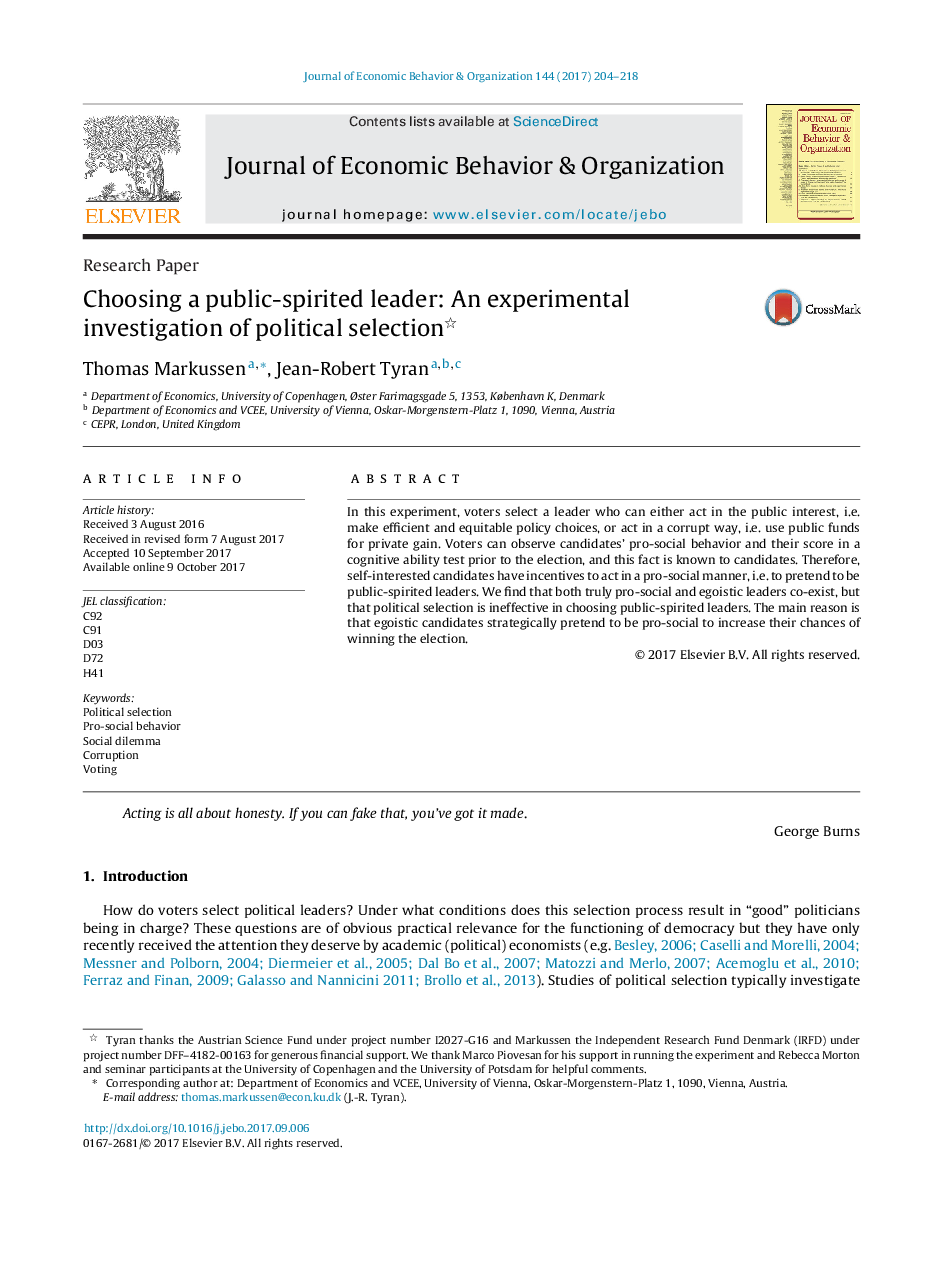| Article ID | Journal | Published Year | Pages | File Type |
|---|---|---|---|---|
| 7242726 | Journal of Economic Behavior & Organization | 2017 | 15 Pages |
Abstract
In this experiment, voters select a leader who can either act in the public interest, i.e. make efficient and equitable policy choices, or act in a corrupt way, i.e. use public funds for private gain. Voters can observe candidates' pro-social behavior and their score in a cognitive ability test prior to the election, and this fact is known to candidates. Therefore, self-interested candidates have incentives to act in a pro-social manner, i.e. to pretend to be public-spirited leaders. We find that both truly pro-social and egoistic leaders co-exist, but that political selection is ineffective in choosing public-spirited leaders. The main reason is that egoistic candidates strategically pretend to be pro-social to increase their chances of winning the election.
Related Topics
Social Sciences and Humanities
Economics, Econometrics and Finance
Economics and Econometrics
Authors
Thomas Markussen, Jean-Robert Tyran,
